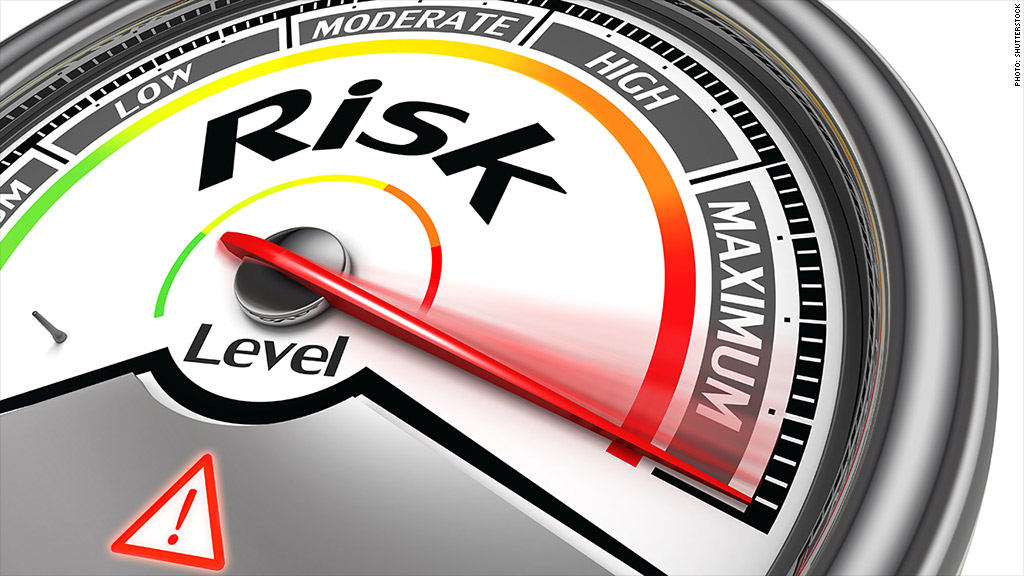
Investors are still getting indigestion over the thought of owning the riskiest U.S. stocks.
Yes, the major U.S. markets like the S&P 500 are sitting just below all-time highs.
But a glance under the hood reveals that over half -- 52% to be precise --of the 2,433 stocks listed on the Nasdaq are actually stuck in a bear market. A bear market is a technical term for a 20% decline from a previous 52-week high.
While some of these Nasdaq-listed stocks are major household names like Amazon.com (AMZN), Wendy's (WEN) and Whole Foods (WFM), the vast majority are riskier small-cap stocks such as Travelzoo (TZOO) and Del Frisco's (DFRG).
Related: Yikes! Facebook, Twitter, LinkedIn plunge
These smaller and more speculative stocks are subject to increased volatility because of their size and weaker fundamentals. That can spell trouble during times of stress such as the recent jitters over the Federal Reserve's interest rate policies.
"As we get further out into the economic cycle, you start to leave some stocks behind," said Scott Wren, senior equity strategist at Wells Fargo Advisors.
Related: More US families own cats than stocks
Sizing up risk: Larger, less risky stocks are performing far better. While more than half of the Nasdaq is in bear-market territory, less than 6% of the larger and more prestigious S&P 500 fit that classification. These bear market S&P 500 stocks include Best Buy (BBY), GameStop (GME) and Coach (COH).
None of the 30 members of the even more exclusive Dow are in a bear market. Just one stock -- United Technologies (UTX) -- is currently trading 10% below its 52-week highs.
"It shows that stocks that are riskier are getting hurt as the market is trading sideways. That's not good, but it's not automatically something that is bad," said Dan Greenhaus, chief global strategist at BTIG.
Fed jitters: The aversion to the riskiest stocks has been a common theme of 2014 as investors ponder the Fed's slow removal of stimulus. That may have been a factor behind Monday's tech tumble on Wall Street.
Related: Investors tell Fed not to fumble interest rates
When it concludes a two-day meeting on Wednesday, the central bank is likely to announce plans to halt its bond purchases in October. Some investors fear the Fed will also signal faster-than-expected rate hikes.
While stocks may have a "knee-jerk" negative reaction to higher rates, JPMorgan Funds doesn't expect the Fed to trigger a broader market plunge.
"Higher interest rates are a signal of stronger economic activity," said David Lebovitz, global market strategist at JPMorgan Funds.
Related: Alibaba is coming -- but should you buy it?
The Fed itself reinforced concerns about risky stocks when it warned in July that some smaller social media and biotech stocks may be in a bubble.
Still, it's important to remember that the Nasdaq is up almost 9% for the year despite the fact that half its members are in a bear market. That's thanks to strong performances from less sexy but more reliable tech stocks like Intel (INTC), Micron Technology (MU) and Microsoft (MSFT).
"The big-cap names in the Nasdaq that have good balance sheets and are making money are doing fine. These smaller names that are much mroe speculative are lagging or falling off," said Wren.


